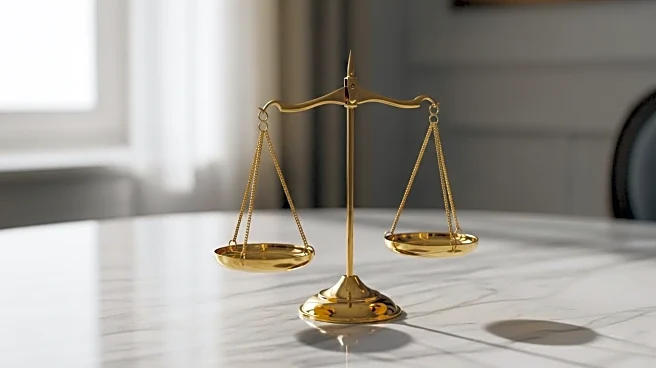What is the story about?
What's Happening?
President Trump has issued an executive order imposing a $100,000 fee on H-1B visa applications, citing systemic abuse of the program. This move is part of a broader immigration crackdown aimed at prioritizing higher-skilled and higher-paid foreign workers. The Department of Homeland Security has proposed changes to the H-1B lottery system to favor higher-wage roles. Critics argue that the fee and policy changes could severely impact international graduates and tech companies reliant on global talent. The fee is seen as a way to effectively shut down the program without explicitly doing so, raising concerns about its legal and economic viability.
Why It's Important?
The imposition of a $100,000 fee on H-1B visas represents a significant shift in U.S. immigration policy, potentially affecting the ability of American companies to attract global talent. This policy could lead to a talent drain, as skilled workers may seek opportunities in countries with more favorable immigration policies. The changes could also impact the tech industry, which heavily relies on H-1B visas to fill specialized roles. The fee and proposed lottery changes may face legal challenges, highlighting the contentious nature of immigration reform and its implications for the U.S. economy and workforce.
What's Next?
The proposed changes to the H-1B visa process will undergo a 30-day public comment period before being considered for a final rule. This period may see significant feedback from businesses, immigration advocates, and legal experts. The administration's policies are likely to face challenges in court, which could delay or alter their implementation. Companies and prospective visa holders will need to navigate these changes and consider alternative strategies for hiring foreign talent.















